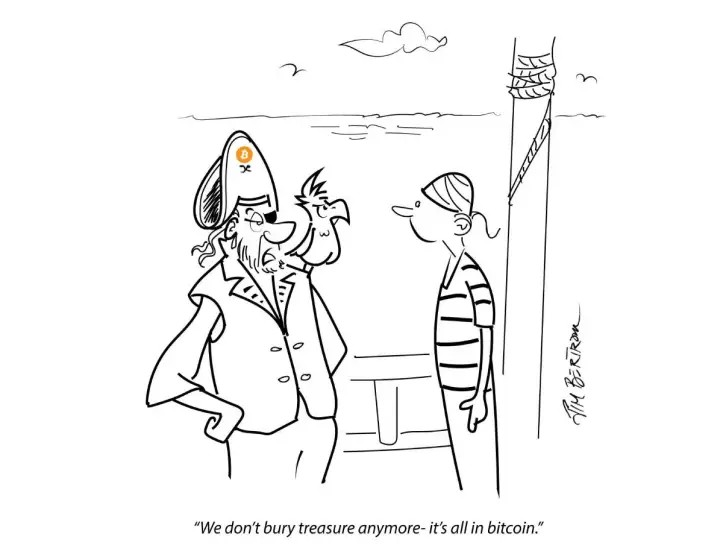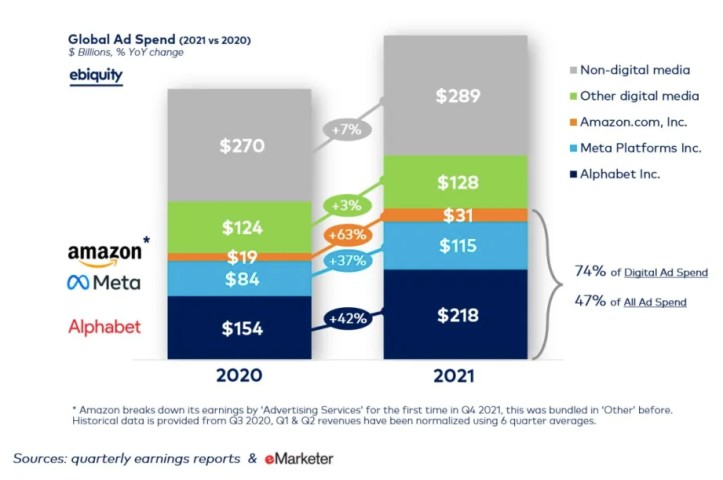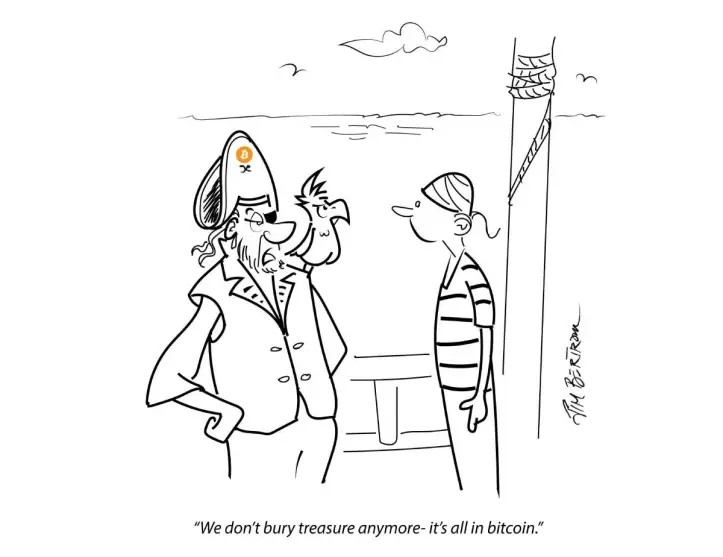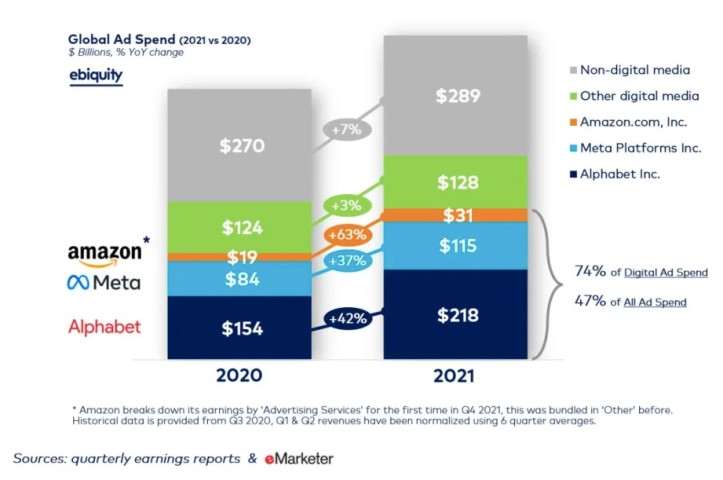
Image Source
What a story this has been… First Elon wanted to buy Twitter, but Twitter didn’t want to sell. Then Twitter wanted to sell, but Elon didn’t want to buy. Twitter sued Elon, then Elon wanted to buy, but Twitter didn’t want to sell and kept suing Elon to buy.
Well, now Elon Musk owns Twitter —he finally acquired the company for $44 billion. Immediately after, he fired the CEO and several top executives and tweeted “the bird is freed.”
Beyond firing the company’s top brass, Elon has a lot of plans for Twitter and he’s been sharing his thoughts with us through his tweets and documents leaked from the Twitter lawsuit.
He’s consistently said that he wants Twitter to be more open and has promised free speech for all —he will unban controversial accounts, including former President Trump— and to relax content moderation rules.
He’s also tweeted about stopping ads and turning Twitter into “X, the everything app.”
Compared with its rivals, Twitter is a comparatively small platform with around 300 million monthly users, that has never experienced the exponential growth for example of TikTok or Instagram. But it has a commanding role in news distribution and is considered influential —it is widely used by politicians, thought leaders, and businesses, and is usually the first place they will share their opinions and comments.
Since going public in 2013, Twitter has occasionally turned a profit. Except for 2018 and 2019 when it made a profit of just over $1 billion, Twitter has posted a net loss every year.
Twitter makes money from selling ads and licensing data. Revenue from ads represents more than 85% of its total revenue and in 2021 Twitter made over $4.3 billion from advertising and $760 million from data licensing.
But, Google, Facebook, and Amazon get the lion’s share of the advertising dollars, leaving little room for anyone else. Elon knows that Twitter cannot become a dominant player in the ads business, even if advertising is how it butters its bread today.
What a story this has been… First Elon wanted to buy Twitter, but Twitter didn’t want to sell. Then Twitter wanted to sell, but Elon didn’t want to buy. Twitter sued Elon, then Elon wanted to buy, but Twitter didn’t want to sell and kept suing Elon to buy.
Well, now Elon Musk owns Twitter —he finally acquired the company for $44 billion. Immediately after, he fired the CEO and several top executives and tweeted “the bird is freed.”
Beyond firing the company’s top brass, Elon has a lot of plans for Twitter and he’s been sharing his thoughts with us through his tweets and documents leaked from the Twitter lawsuit.
He’s consistently said that he wants Twitter to be more open and has promised free speech for all —he will unban controversial accounts, including former President Trump— and to relax content moderation rules.
He’s also tweeted about stopping ads and turning Twitter into “X, the everything app.”
Compared with its rivals, Twitter is a comparatively small platform with around 300 million monthly users, that has never experienced the exponential growth for example of TikTok or Instagram. But it has a commanding role in news distribution and is considered influential —it is widely used by politicians, thought leaders, and businesses, and is usually the first place they will share their opinions and comments.
Since going public in 2013, Twitter has occasionally turned a profit. Except for 2018 and 2019 when it made a profit of just over $1 billion, Twitter has posted a net loss every year.
Twitter makes money from selling ads and licensing data. Revenue from ads represents more than 85% of its total revenue and in 2021 Twitter made over $4.3 billion from advertising and $760 million from data licensing.
But, Google, Facebook, and Amazon get the lion’s share of the advertising dollars, leaving little room for anyone else. Elon knows that Twitter cannot become a dominant player in the ads business, even if advertising is how it butters its bread today.

This whole free-speech absolutism runs headlong into making Twitter a viable business from ads, and this in part is why Elon has tweeted that he does not want to run ads.

Advertisers care a lot about “brand safety.” If you running ads for your brand, you don’t want to place them for instance next to a Neo-Nazi tweet. If Elon opens up the platform and lets in a tsunami of bullies, misinformation, and other sludge, advertisers will flee and ad revenue with dissipate.
Elon is a smart guy and he knows all this, which is why we are hearing him talk about his plans for X to make Twitter profitable.
Elon’s inspiration for X is WeChat, used by more than a billion people in China. WeChat allows people to use QR codes to do all manner of tasks, from buying groceries to booking a dentist appointment, hailing a taxi, sharing photos with friends, or playing video games. They can access a government-issued ID card through WeChat too.
Elon Musk is no stranger to the fintech world. In 1999, he founded X.com, an early online bank —customer deposits were insured by the FDIC. In 2000, X.com merged with Confinity, a payments startup led by Peter Thiel, and the resulting entity became PayPal.
Obviously, he’s been thinking about this for a while. Back in 2017, he reacquired the domain name X.com from PayPal for an undisclosed amount.
This new X project sounds to me like Elon wants to revisit fintech wearing a crypto mask and taking advantage of Twitter’s global user base. In personal texts that were published as part of legal proceedings in the Twitter case, Elon told his brother, that he had “an idea for a blockchain social media system that does both payments and short text messages and links like Twitter.”
I can understand why Elon is eager to copy WeChat’s model. WeChat made an estimated $17.49 billion in revenue in 2021, largely by taking a cut on transactions it processes for things like games, deliveries, and a thriving market for digital services. More than half a billion people use thousands of mini-apps inside WeChat every day.
But Elon Musk is not alone in the pursuit of building a super app.
Super apps are one of the hottest trends in tech right now and they represent the holy grail of the web3 era. The term super app is nothing new. It was introduced to the world in 2010 by Mike Lazaridis, Blackberry’s founder, and CEO. They are appealing because they solve the issue of choice overload, minimizing the number of apps and digital services consumers need to manage.
Already several fintech have been shifting to support a wider range of consumer needs in the last year and become one-stop shops for consumers’ needs.
Revolut and Klarna stand out, but many others also have super app ambitions (Curve, Wise, Lydia, Argent, Nubank, Douugh, etc)
In the past Revolut forayed outside the realm of finance into hotel bookings with ”Stays” and last week with “Shops,” making another push to become a true multi-vertical super app. In the other geographies, RappiColombia has raised $500 million ($5 billion valuation), PideYummy raised $4 million from Ycombinator and others, and India’s Paytm was the country’s largest-ever IPO in late 2021.
A year ago, PayPal, launched a redesigned app, that bundles a slew of services, including a shopping hub, a high-yield savings account, and even a fundraising platform. Buy now, pay later (BNPL) providers like Affirm and Klarna have also launched their versions of a super app that integrate their core BNPL solutions with other shopping and financial tools.
Making a super app is hard on many levels, but most of them have nothing to do with technology.
A question that comes to mind is why didn’t Jack Dorsey merge Twitter with Block to create a super app. In one of their conversations, Dorsey wrote to Elon:
“Yes, a new platform is needed. It can’t be a company. This is why I left. An open-source protocol, funded by a foundation of sorts that doesn’t own the protocol, only advances it.”
Something else not to forget is the lessons from Facebook’s Libra. Governments in the west are wary of monopolies, especially in Europe, and a super app with a lot of data and power could face big problems and eventually be gutted.
I think we can expect to see crypto tightly integrated into Twitter, with possibly a token-based voting system that allows everyone to have a say over the product, peer-to-peer crypto payments, and every tweet and transaction recorded on the blockchain with its ownership verified. All this without a central entity that decides what is right or wrong —no censorship whatsoever. If Elon succeeds, Twitter will become the gateway to the World of X —that world may even be a metaverse.
If you owned a company like Tesla, what would you be thinking… I am already building a fleet of self-driving cars and with X I could create an Uber killer powered by the blockchain (in 2021, Uber made $17.45 billion).
Now think about some of the other things he’s working on (telecommunications and connectivity, personal transportation, solar energy and power storage, AI, gaming etc) and imagine the World of X available through a super app to Twitter users.
If you’ve ever been to an FAO Schwarz store, I am sure you’ve heard of “Welcome To Our World Of Toys.” This music pops into my head when I think of Elon’s World of X —an amazing and fun experience. Then again it could be because Christmas is coming, and I am just thinking about toys 😆
As far as users being interested in super apps, so far we haven’t seen super apps really take off in a meaningful way outside of Asia. Most people in the US use different apps for different things. But research by PYMNTS validates that Elon may be moving in the right direction, and shows that three-quarters of consumers would be interested in super apps —with the right brand and offering it could be a hit.
For the next decade or so, the trend among consumers and businesses will gravitate toward super apps. Super apps can and will provide unique experiences based on customer preferences and historical behavior.
The big question is not whether Elon’s new X project will succeed or not. I think it will do fine, because he has a strong global brand, a strong personal brand, access to all the resources he needs, a large user base, and a vision. The question is whether banks understand how they will deliver value in a world dominated by super apps, that are integrated with crypto and web3, and whether they can move quickly enough to respond before super apps become a super disruption.
Elon is a smart guy and he knows all this, which is why we are hearing him talk about his plans for X to make Twitter profitable.
Elon’s inspiration for X is WeChat, used by more than a billion people in China. WeChat allows people to use QR codes to do all manner of tasks, from buying groceries to booking a dentist appointment, hailing a taxi, sharing photos with friends, or playing video games. They can access a government-issued ID card through WeChat too.
Elon Musk is no stranger to the fintech world. In 1999, he founded X.com, an early online bank —customer deposits were insured by the FDIC. In 2000, X.com merged with Confinity, a payments startup led by Peter Thiel, and the resulting entity became PayPal.
Obviously, he’s been thinking about this for a while. Back in 2017, he reacquired the domain name X.com from PayPal for an undisclosed amount.
This new X project sounds to me like Elon wants to revisit fintech wearing a crypto mask and taking advantage of Twitter’s global user base. In personal texts that were published as part of legal proceedings in the Twitter case, Elon told his brother, that he had “an idea for a blockchain social media system that does both payments and short text messages and links like Twitter.”
I can understand why Elon is eager to copy WeChat’s model. WeChat made an estimated $17.49 billion in revenue in 2021, largely by taking a cut on transactions it processes for things like games, deliveries, and a thriving market for digital services. More than half a billion people use thousands of mini-apps inside WeChat every day.
But Elon Musk is not alone in the pursuit of building a super app.
Super apps are one of the hottest trends in tech right now and they represent the holy grail of the web3 era. The term super app is nothing new. It was introduced to the world in 2010 by Mike Lazaridis, Blackberry’s founder, and CEO. They are appealing because they solve the issue of choice overload, minimizing the number of apps and digital services consumers need to manage.
Already several fintech have been shifting to support a wider range of consumer needs in the last year and become one-stop shops for consumers’ needs.
Revolut and Klarna stand out, but many others also have super app ambitions (Curve, Wise, Lydia, Argent, Nubank, Douugh, etc)
In the past Revolut forayed outside the realm of finance into hotel bookings with ”Stays” and last week with “Shops,” making another push to become a true multi-vertical super app. In the other geographies, RappiColombia has raised $500 million ($5 billion valuation), PideYummy raised $4 million from Ycombinator and others, and India’s Paytm was the country’s largest-ever IPO in late 2021.
A year ago, PayPal, launched a redesigned app, that bundles a slew of services, including a shopping hub, a high-yield savings account, and even a fundraising platform. Buy now, pay later (BNPL) providers like Affirm and Klarna have also launched their versions of a super app that integrate their core BNPL solutions with other shopping and financial tools.
Making a super app is hard on many levels, but most of them have nothing to do with technology.
A question that comes to mind is why didn’t Jack Dorsey merge Twitter with Block to create a super app. In one of their conversations, Dorsey wrote to Elon:
“Yes, a new platform is needed. It can’t be a company. This is why I left. An open-source protocol, funded by a foundation of sorts that doesn’t own the protocol, only advances it.”
Something else not to forget is the lessons from Facebook’s Libra. Governments in the west are wary of monopolies, especially in Europe, and a super app with a lot of data and power could face big problems and eventually be gutted.
I think we can expect to see crypto tightly integrated into Twitter, with possibly a token-based voting system that allows everyone to have a say over the product, peer-to-peer crypto payments, and every tweet and transaction recorded on the blockchain with its ownership verified. All this without a central entity that decides what is right or wrong —no censorship whatsoever. If Elon succeeds, Twitter will become the gateway to the World of X —that world may even be a metaverse.
If you owned a company like Tesla, what would you be thinking… I am already building a fleet of self-driving cars and with X I could create an Uber killer powered by the blockchain (in 2021, Uber made $17.45 billion).
Now think about some of the other things he’s working on (telecommunications and connectivity, personal transportation, solar energy and power storage, AI, gaming etc) and imagine the World of X available through a super app to Twitter users.
If you’ve ever been to an FAO Schwarz store, I am sure you’ve heard of “Welcome To Our World Of Toys.” This music pops into my head when I think of Elon’s World of X —an amazing and fun experience. Then again it could be because Christmas is coming, and I am just thinking about toys 😆
As far as users being interested in super apps, so far we haven’t seen super apps really take off in a meaningful way outside of Asia. Most people in the US use different apps for different things. But research by PYMNTS validates that Elon may be moving in the right direction, and shows that three-quarters of consumers would be interested in super apps —with the right brand and offering it could be a hit.
For the next decade or so, the trend among consumers and businesses will gravitate toward super apps. Super apps can and will provide unique experiences based on customer preferences and historical behavior.
The big question is not whether Elon’s new X project will succeed or not. I think it will do fine, because he has a strong global brand, a strong personal brand, access to all the resources he needs, a large user base, and a vision. The question is whether banks understand how they will deliver value in a world dominated by super apps, that are integrated with crypto and web3, and whether they can move quickly enough to respond before super apps become a super disruption.

Ilias Louis Hatzis
Ilias Louis Hatzis is the Founder & CEO at Mercato Blockchain Corporation AG.
Ilias Louis Hatzis is the founder and CEO at Kryptonio wallet. Create your wallet in less than a minute, without seed phrases, private keys, passwords or documents. Keep your bitcoin and digital assets always secure and recoverable: https://kryptonio.com
I have no positions or commercial relationships with the companies or people mentioned. I am not receiving compensation for this post.
Ilias Louis Hatzis is the founder and CEO at Kryptonio wallet. Create your wallet in less than a minute, without seed phrases, private keys, passwords or documents. Keep your bitcoin and digital assets always secure and recoverable: https://kryptonio.com
I have no positions or commercial relationships with the companies or people mentioned. I am not receiving compensation for this post.
Autres articles
-
Revolut obtient une licence bancaire au Royaume-Uni
-
Nominations | Eight Advisory annonce deux nouveaux associés en France
-
NFT : L'Opéra de Paris dévoilera à la rentrée une nouvelle collection d'art numérique
-
Ferrari étend son système de paiement en crypto-monnaie à l'Europe après son lancement aux États-Unis
-
WEB3 : L'Europe, le baby-blues des licornes ?


















